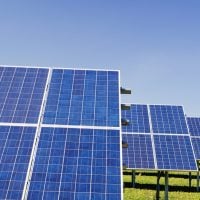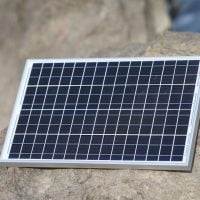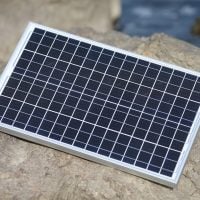In recent years, the global shift towards sustainable energy solutions has gained unprecedented momentum. Clean energy grants have emerged as a vital resource for non-governmental organizations (NGOs) aiming to implement projects that promote renewable energy sources, reduce carbon footprints, and foster environmental stewardship. These grants not only provide financial support but also serve as a catalyst for innovation and community engagement.
For NGO professionals, understanding the landscape of clean energy grants is essential for harnessing these opportunities effectively. The significance of clean energy grants extends beyond mere funding; they represent a commitment to a sustainable future. By tapping into these resources, NGOs can spearhead initiatives that not only address immediate energy needs but also contribute to long-term environmental goals.
Whether it’s solar panel installations, wind energy projects, or community education programs on energy conservation, clean energy grants can empower organizations to make a tangible difference in their communities. This article will explore actionable strategies for NGO professionals to navigate the world of clean energy grants successfully. Are You Working on Solar Innovation or Clean Energy Access? Join us to receive updates.
Key Takeaways
- Clean energy grants provide funding for projects that promote renewable energy and energy efficiency.
- Eligibility criteria for clean energy grants may include project location, organization type, and project scope.
- Research available clean energy grants through government agencies, non-profit organizations, and private foundations.
- A solid project proposal for clean energy grants should include a clear project plan, budget, and expected impact.
- Building collaborative partnerships with other organizations and stakeholders can strengthen a clean energy grant proposal.
Understanding the Eligibility Criteria
Before diving into the application process for clean energy grants, it is crucial for NGOs to thoroughly understand the eligibility criteria set forth by grant-making organizations. These criteria can vary significantly depending on the funding source, which may include government agencies, private foundations, or corporate sponsors. Common eligibility requirements often include the type of organization (non-profit status), project scope, geographic focus, and alignment with specific clean energy goals.
For instance, some grants may prioritize projects that serve low-income communities or those disproportionately affected by climate change. Others might focus on innovative technologies or educational initiatives. By carefully reviewing these criteria, NGOs can tailor their proposals to align with the funders’ priorities, thereby increasing their chances of securing funding.
Additionally, understanding eligibility can help organizations identify which grants are worth pursuing and which may not be a good fit for their mission or capabilities.
Researching Available Clean Energy Grants

Once eligibility criteria are understood, the next step is to conduct thorough research on available clean energy grants. This process involves identifying potential funding sources that align with the organization’s mission and project goals. Various online databases and resources can assist in this endeavor, such as Grants.gov, Foundation Center, and state-specific grant portals.
These platforms provide comprehensive listings of grants, including application deadlines, funding amounts, and specific requirements. Moreover, networking within the clean energy sector can yield valuable insights into upcoming grant opportunities. Attending conferences, workshops, and webinars focused on renewable energy can help NGO professionals connect with funders and other organizations that have successfully secured grants.
Engaging with local universities or research institutions can also provide access to collaborative opportunities and funding insights. By leveraging these resources, NGOs can create a targeted list of potential grants that align with their clean energy initiatives.
Creating a Solid Project Proposal
A well-crafted project proposal is the cornerstone of a successful grant application. It serves as a roadmap for funders to understand the project’s objectives, methodology, and anticipated outcomes. To create a compelling proposal, NGOs should begin by clearly defining the project’s goals and how they align with the funder’s mission.
This alignment is crucial; funders are more likely to support projects that resonate with their values and objectives. In addition to outlining goals, a strong proposal should include a detailed project plan that addresses implementation strategies, timelines, and measurable outcomes. Incorporating data and research to support the project’s feasibility can enhance credibility.
For example, if an NGO proposes a solar panel installation project, including statistics on energy savings and environmental impact can strengthen the case for funding. Furthermore, engaging stakeholders in the proposal development process can provide diverse perspectives and enhance the project’s overall design.
Building Collaborative Partnerships
Collaboration is a powerful strategy for NGOs seeking clean energy grants. By forming partnerships with other organizations, businesses, or government entities, NGOs can leverage shared resources and expertise to enhance their project proposals. Collaborative partnerships can also demonstrate to funders that there is community support and a broader impact potential for the proposed initiative.
For instance, an NGO focused on renewable energy education might partner with local schools to implement educational programs on sustainability. This partnership not only broadens the reach of the project but also showcases community engagement—a key factor that many funders look for in grant applications. Additionally, collaborating with businesses in the clean energy sector can provide access to technical expertise and resources that strengthen project implementation.
Demonstrating Community Impact

Funders are increasingly interested in understanding how their investments will create meaningful change within communities. Therefore, NGOs must articulate the anticipated community impact of their clean energy projects clearly. This involves not only outlining the direct benefits of the project—such as reduced energy costs or increased access to renewable energy—but also addressing broader social and environmental implications.
For example, an NGO implementing a community solar project could highlight how it will reduce energy poverty in low-income neighborhoods while also creating local jobs in installation and maintenance. Providing qualitative and quantitative data to support these claims can enhance credibility. Surveys, testimonials from community members, and case studies from similar projects can all serve as powerful tools to illustrate potential impact.
Budgeting and Financial Planning
A comprehensive budget is a critical component of any grant proposal. It provides funders with a clear understanding of how requested funds will be allocated and demonstrates the organization’s financial responsibility. When developing a budget for a clean energy project, NGOs should include all relevant costs—such as materials, labor, administrative expenses, and any indirect costs associated with project implementation.
Moreover, it is essential to justify each line item in the budget by explaining its relevance to the project’s goals. Funders appreciate transparency and clarity in budgeting; therefore, providing detailed explanations for costs can help build trust. Additionally, NGOs should consider including potential sources of matching funds or in-kind contributions from partners to demonstrate financial commitment and sustainability.
Navigating the Application Process
The application process for clean energy grants can be complex and competitive. To navigate this landscape effectively, NGOs should develop a clear timeline that outlines key milestones—from initial research to final submission. This timeline should account for all necessary steps, including gathering supporting documents, obtaining letters of support from partners, and allowing time for revisions based on feedback from colleagues or mentors.
Additionally, NGOs should pay close attention to application guidelines provided by funders. Each grant may have specific formatting requirements or questions that need to be addressed in particular ways. Adhering strictly to these guidelines is crucial; failure to do so can result in disqualification from consideration.
Engaging in peer reviews or seeking feedback from experienced grant writers can also enhance the quality of the application before submission.
Engaging with Local Government and Agencies
Building relationships with local government officials and agencies can significantly enhance an NGO’s chances of securing clean energy grants. Local governments often have insights into available funding opportunities and may even provide letters of support that strengthen grant applications. Engaging with local agencies responsible for energy policy or environmental initiatives can also open doors for collaboration on projects that align with community priorities.
Moreover, demonstrating alignment with local government goals—such as reducing greenhouse gas emissions or increasing renewable energy adoption—can make proposals more appealing to funders who prioritize community impact. Regular communication with local officials not only fosters goodwill but also positions NGOs as proactive partners in advancing clean energy initiatives within their communities.
Implementing Sustainable Practices
Once funding is secured and projects are underway, NGOs must prioritize implementing sustainable practices throughout the project lifecycle. This commitment not only ensures that projects achieve their intended outcomes but also sets an example for communities regarding responsible resource management. Sustainable practices may include using locally sourced materials, minimizing waste during installation processes, or incorporating educational components that promote ongoing community engagement in sustainability efforts.
Additionally, NGOs should consider how their projects can be designed for long-term sustainability beyond the initial funding period. This might involve creating maintenance plans for renewable energy installations or establishing community-led initiatives that continue promoting clean energy practices after project completion. By embedding sustainability into every aspect of project implementation, NGOs can maximize their impact while fostering a culture of environmental stewardship within their communities.
Reporting and Accountability
Finally, effective reporting and accountability mechanisms are essential components of successful clean energy projects funded by grants. Funders typically require regular progress reports detailing how funds have been utilized and what outcomes have been achieved. NGOs should establish clear metrics for success at the outset of the project and regularly track progress against these benchmarks.
Transparency in reporting not only fulfills funder requirements but also builds trust within the community and among stakeholders. Sharing successes—and challenges—through public reports or community meetings can foster ongoing engagement and support for future initiatives. By demonstrating accountability and a commitment to continuous improvement, NGOs can position themselves favorably for future funding opportunities while reinforcing their role as leaders in promoting clean energy solutions.
In conclusion, navigating the world of clean energy grants requires strategic planning, collaboration, and a commitment to community impact. By understanding eligibility criteria, conducting thorough research, crafting compelling proposals, building partnerships, demonstrating impact, budgeting effectively, engaging with local entities, implementing sustainable practices, and maintaining accountability through reporting, NGO professionals can successfully secure funding for transformative clean energy initiatives that benefit both their organizations and the communities they serve.








































